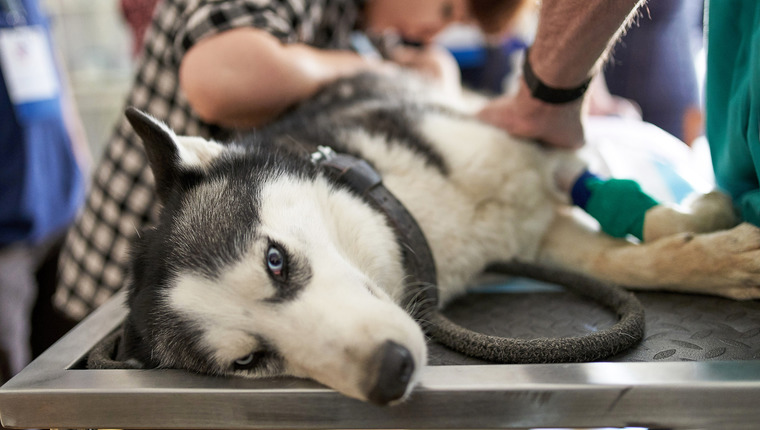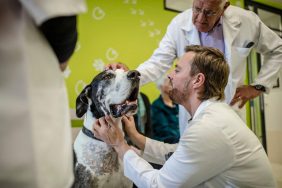
This past September, Nobel prize-winning research used ‘click’ chemistry to treat dogs with large bone tumors.
The study was published in Molecular Pharmaceutics. It built on a chemical process previously only tested in mice to explore options for drug treatment.
Researchers from both California and Denmark worked together to develop the novel ‘click’ chemistry method. Amazingly, the process is proving to be so revolutionary that researchers won the Nobel Prize in Chemistry for their work.
What Is ‘Click’ Chemistry?
Jeffrey Bryan, an associate professor at Missouri University’s College of Veterinary Medicine and one of the study’s authors, spoke to Science Daily about the incredible work. “If you want to attack a tumor using the immune system, an antibody is an extremely specific way to deliver a drug or radioactive payload to the tumor,” says Bryan. “But the problem with antibodies is they are huge molecules that circulate in the bloodstream for days or even weeks.”
As a result, cancer treatments are notoriously slow and lack effectiveness. “If you put a drug or radioactive molecule onto the antibody, you leave radioactivity circulating in the bloodstream for a long time,” says Bryan. Click chemistry uses chemicals that snap together like legos to build better transport systems for treatments. In turn, researchers aim to maximize drug delivery and effectiveness and mitigate adverse side effects from chemotherapy and radiation.
From Mice to Dogs to Humans
While click chemistry has shown promise in trials with mice, other scientists had their doubts. Many didn’t think the same results would translate to larger animals like dogs and humans. Specifically, scientists believed larger body sizes would diminish the ‘click’ chemicals’ ability to locate and connect. However, Bryan—along with Brian Zeglis from Hunter College in New York City—conducted the first successful ‘proof-of-concept’ study with dogs. With five dogs, all weighing over 100 pounds, the team successfully delivered radioactive drugs targeted to the dogs’ bone tumors.
And while the goal is to eventually produce treatments for humans, Bryan is staying focused on helping dogs. As such, Bryan hopes to continue his research and develop an antibody-targeting molecule to treat bone cancer in dogs that aren’t good candidates for surgery.









